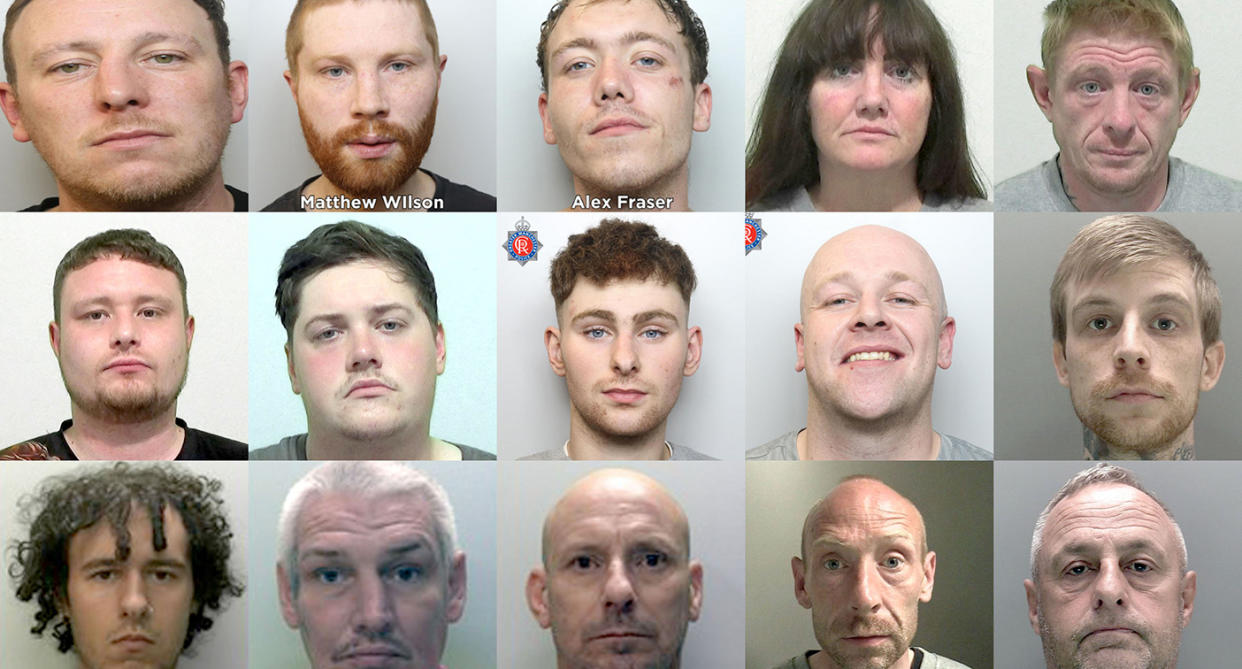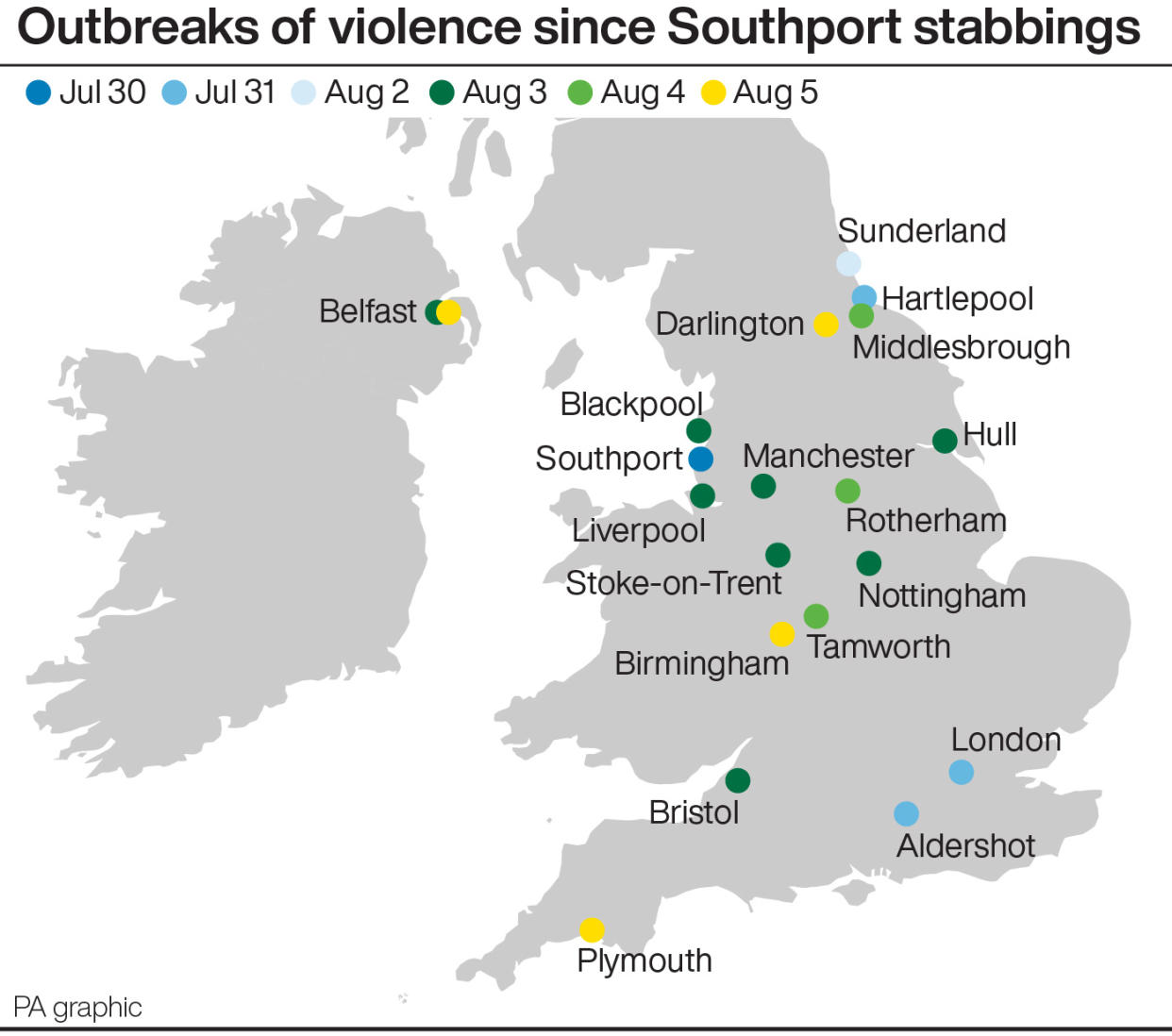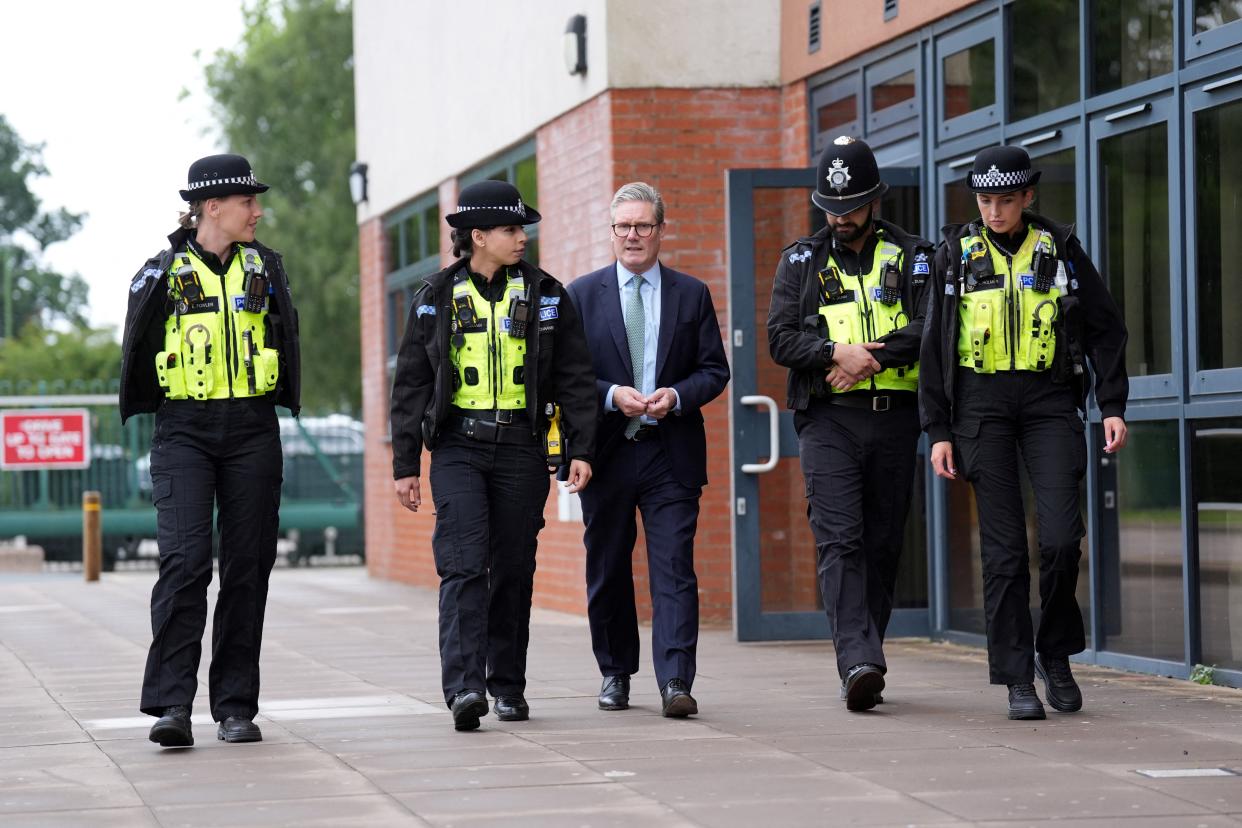How are UK rioters being sentenced so quickly?

People involved in rioting across the country are experiencing first-hand the "swift justice" promised by prime minister Sir Keir Starmer, with some jailed less than a week after committing offences.
Starmer has said that meting out justice quickly, including sentencing, has been a deterrent to more violent disorder.
At least a dozen people were jailed on Thursday for their part in the riots of the past 10 days, with more expected to be sent to prison on Friday, 9 August.
About 150 charges have been brought over the unrest so far, with cases being brought to court swiftly - including one man who was jailed within 24 hours of posting racially aggravated, offensive online content on social media.
Derek Drummond, 58, from Southport, Merseyside, has received the longest prison sentence so far. He was jailed for three years on Wednesday, 7 August, after he pleaded guilty to charges of violent disorder and assaulting an emergency worker during the unrest in Southport on 30 July.
Victoria Cook, Chief Crown Prosecutor for CPS South West, echoed Starmer's sentiments, saying sentences handed out on Thursday should "send a chilling message to those arrested, those sat in cells ahead of their court hearing and those still waiting for a knock from the police".
She said: “Within 72 hours, these offenders have been charged, convicted and jailed, underlining the Crown Prosecution Service’s commitment to swift justice and ensuring those involved in disorder are given the strongest possible penalties."
With cases often taking months to come to court, the speed with which some are being processed has led to some asking how they can be being dealt with so quickly.
'Conveyor belt'
Tana Adkin, chair of the Criminal Bar Association which represents barristers in England and Wales, has explained why riot cases are being dealt with so quickly.
She said it is not because they are being given priority, but because more resources have been made available to deal with them.

Speaking on the BBC's Today programme, Adkin said: "At the moment if a case goes to the crown court and is a trial - so if somebody pleads not guilty - they're going to be waiting around 18 months for the trial."
This is due to a backlog of cases, and a lack of availability of barristers, she said, describing the way cases are listed by judges as a "conveyor belt" system, where as cases come in they are given the next available date for a trial.
"That won't change," she said. "It's not as if these sorts of cases are being given priority at all.
Watch: Starmer vows no let up in stopping further far-right riots

"What's happening is... because we had more police officers brought in some time ago and we are, I'd say, probably more efficient, and the CPS have thrown people at this problem, what's happening is police officers are arresting people accused of violence, CPS prosecutors are looking at the evidence very quickly and being able to make a deicsion on charge and then the case is coming to court very quickly.
"If those people involved plead guilty, and therefore they are guilty, very quickly the case can be committed to the crown court if it's serious and a judge can deal with the matter the same day."
The difficult comes if the case is not a guilty plea and then goes to trial, she explained, because it means much more work needs to be done.


